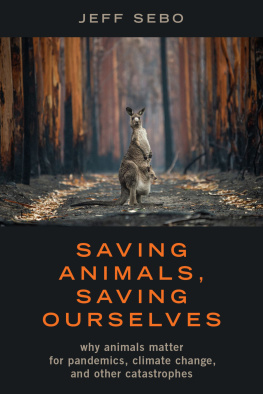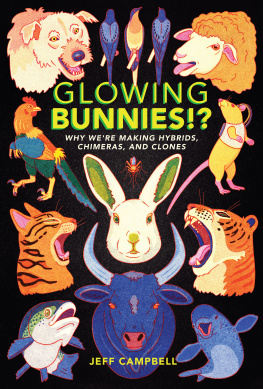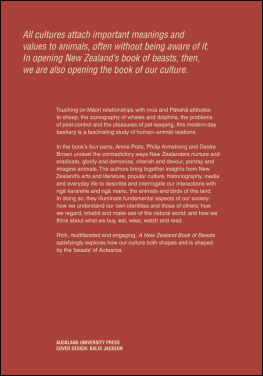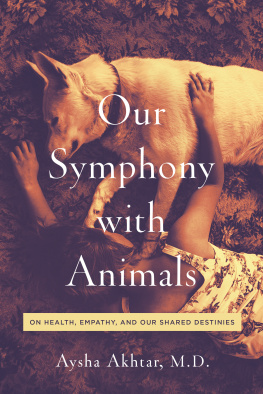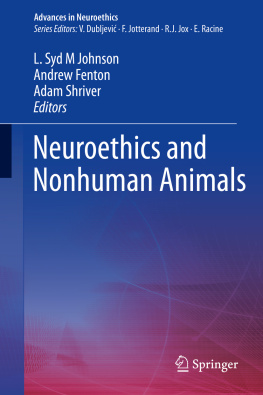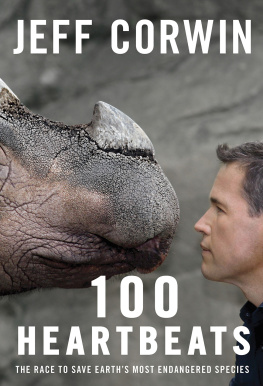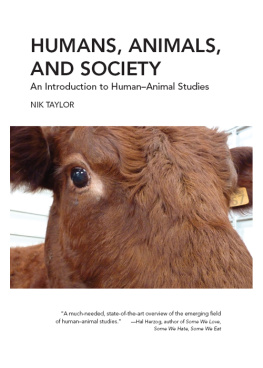Saving Animals, Saving Ourselves

Oxford University Press is a department of the University of Oxford. It furthers the Universitys objective of excellence in research, scholarship, and education by publishing worldwide. Oxford is a registered trade mark of Oxford University Press in the UK and certain other countries.
Published in the United States of America by Oxford University Press
198 Madison Avenue, New York, NY 10016, United States of America.
Oxford University Press 2022
All rights reserved. No part of this publication may be reproduced, stored in a retrieval system, or transmitted, in any form or by any means, without the prior permission in writing of Oxford University Press, or as expressly permitted by law, by license, or under terms agreed with the appropriate reproduction rights organization. Inquiries concerning reproduction outside the scope of the above should be sent to the Rights Department, Oxford University Press, at the address above.
You must not circulate this work in any other form and you must impose this same condition on any acquirer.
Library of Congress Cataloging-in-Publication Data
Names: Sebo, Jeff, author.
Title: Saving animals, saving ourselves : why animals matter for pandemics,
climate change, and other catastrophes / Jeff Sebo.
Description: New York, NY : Oxford University Press, [2022] |
Includes bibliographical references and index.
Identifiers: LCCN 2021049878 | ISBN 9780190861018 (hardback) |
ISBN 9780190861032 (epub) | ISBN 9780190861025 (updf)
Subjects: LCSH: Animal welfareMoral and ethical aspects. |
NatureEffect of human beings on. | Environmentalism.
Classification: LCC HV4708 .S43 2022 |
DDC 636.08/32dc23/eng/20211220
LC record available at https://lccn.loc.gov/2021049878
DOI: 10.1093/oso/9780190861018.001.0001
For Dale
Contents
When I started work on this book, we lived in a very different world. I signed a contract to write this book in 2017, and I spent about a year researching this topic while finishing work on two related books. I then spent 2018 writing a first draft and 2019 writing a second draft. Finally, in late 2019 and early 2020, three things happened at roughly the same time: I started working on the third draft of this book, and the Australia bushfires and COVID-19 started dominating international headlines. So, while the book draws from years of work, I wrote the current draft over the past year, when many of us were working from home and the world was finally starting to reckon with the complex relationships among human, nonhuman, and environmental health. As you will see, the final draft is clearly a product of this context.
I live in New York City, and COVID-19 hit our city hard and fast. During the first three months of the pandemic, our city had approximately 203,000 confirmed cases, with a 9.2% overall death rate and a 32.1% death rate among hospitalized patients. My partner Maryse and I were paying close attention to these statistics because Maryse has health conditions that make them particularly vulnerable to the virus. By late February, we were working from home. By early March, we were stocking up on food, soap, and toilet paper. By mid-March, we were bartering spare Lysol wipes for spare N-95 masks. By late March, we were researching which cities had the most hospital beds per capita so that we could estimate where Maryse would be least likely to be denied care. It was a surreal experience.
More generally, as COVID-19 spread all over the world, we were all confronted with the profound injustices in our current social, political, and economic systems. As scared as Maryse and I were, for ourselves and our other loved ones, we also knew that we were relatively safe. We both had jobs that we could do from home, and we also had all the other advantages that come with our relatively privileged socioeconomic statuses. Many other people in our city, particularly low-income people, were much less lucky. They faced increased risk not only of the direct effects of COVID-19 but also of indirect effects such as income and housing insecurity. As with many crises, the pandemic was a shock to the system that both introduced new threats and amplified existing threats and disparities.
Then, in May 2020, the killing of George Floyd, a 46-year-old Black man, by Minneapolis police officer Derek Chauvin sparked outrage and led to protests all over the world. Along with the pandemic and election, the Movement for Black Lives created an energy in New York City that is hard to put into words.

